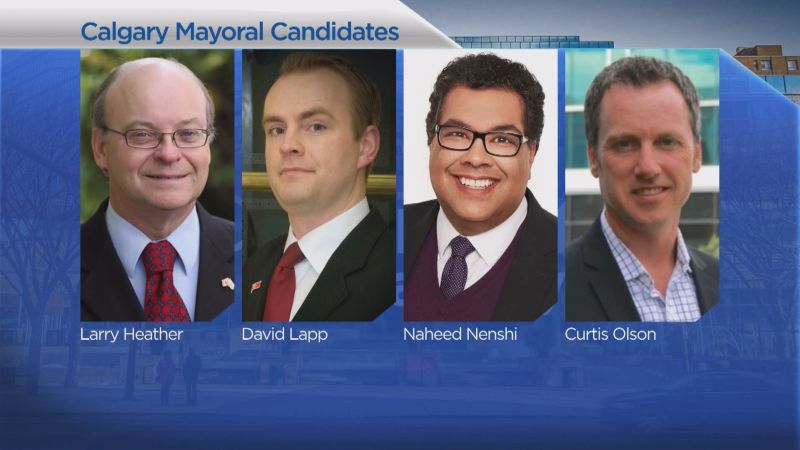Calgary's municipal election, just weeks away, faces unprecedented challenges as a national postal workers' strike disrupts campaign strategies and the city grapples with the implications of its "weak mayor" system amid experiments with political parties. The confluence of these factors has created a dynamic and uncertain political landscape, forcing candidates to adapt quickly and voters to navigate a complex election process. The postal strike is particularly impacting local election efforts and may influence voter engagement, raising questions about the future of civic participation.
Postal Strike Disrupts Traditional Campaigning
The Canadian Union of Postal Workers' decision to strike has thrown a wrench into the traditional methods of reaching voters. This action, occurring less than a year after a previous work stoppage, has forced Canada Post to suspend its mail delivery service, effectively halting the distribution of campaign materials across Calgary. The timing is especially problematic, as the election is rapidly approaching, leaving campaign teams scrambling to find alternative ways to connect with potential voters. This disruption also arrives on the heels of Elections Calgary beginning to mail voter information cards, but only some households received the critical information before the strike hit.
- Impact on Voter Information: The delayed delivery of voter information cards is a significant concern. These cards provide essential details about polling locations and voter eligibility, and their absence could lead to confusion and decreased voter turnout. Elections Calgary is working to assess the impact and identify addresses that did not receive the cards.
- Challenges with Mail-in Voting: The strike also complicates the mail-in voting process. While Calgary voters have been able to request mail-in ballot packages, the delivery and return of these ballots are now uncertain. Voters requesting ballots after a certain date must pick them up in person. They must also pay for the return courier.
- Candidate Responses: Several candidates have expressed concerns about the strike's impact on their campaigns. Some candidates face sunk costs due to the undelivered campaign materials that have already been paid for, while they are figuring out the next steps to get them back. More importantly, candidate and campaign teams are pressed for time and the volunteer resources needed to change gears at the last minute. Others view it as an opportunity to level the playing field, as they did not have plans to depend on Canada Post in the first place.
Adapting Campaign Strategies in the Digital Age

With traditional mail campaigns sidelined, candidates are increasingly turning to digital platforms to connect with voters. However, experts caution against relying solely on online communication. While online platforms offer a cost-effective way to reach a large audience, they may not be accessible to everyone.
- Digital Divide: Not all voters have access to the internet or are actively engaged in political discussions online. This digital divide could lead to certain segments of the population being left out of the election conversation.
- The Power of Physical Materials: Physical campaign materials, such as election signs and mailed leaflets, can have a lasting impact. These materials serve as constant reminders of the upcoming election and can be easily shared within households.
- Potential for Reduced Voter Turnout: The combination of uncertainty surrounding mail-in voting and fewer reminders about the election could lead to decreased voter turnout. It is essential that Elections Calgary and campaign teams prioritize clear and reliable information to ensure that all eligible voters can participate in the democratic process.
The "Weak Mayor" System and its Implications

Beyond the challenges posed by the postal strike, Calgary's municipal election is also taking place within the context of Alberta's "weak mayor" system. This system, which limits the mayor's legislative authority, raises questions about the true influence of the city's top elected official.
- Limited Legislative Power: Unlike "strong mayor" systems in other jurisdictions, such as Ontario, the mayor of Calgary holds just one vote on city council. This means that the mayor's ability to enact policy changes is heavily reliant on building consensus among the other 14 councillors.
- Influence Beyond Legislation: Despite the limited legislative power, the mayor of Calgary holds significant influence as the public face of the city. The mayor represents Calgary at national and international events and plays a crucial role in shaping the city's image.
- Comparison to Ontario's "Strong Mayor" System: In contrast to Alberta, Ontario has adopted a "strong mayor" system, granting mayors increased authority to push through housing and development projects. This system has been met with mixed reactions, with some critics arguing that it can lead to the sidelining of councillors and undermine the independence of municipal staff.
The Introduction of Political Parties: A Game Changer?

Another significant development in Calgary's municipal election is the introduction of political parties. This pilot project, approved by the province for Calgary and Edmonton, could have a profound impact on the dynamics of city council.
- Potential for Voting Blocs: While voting blocs are not uncommon on city council, the introduction of formal political parties could further entrench these divisions. This could lead to more predictable voting patterns and potentially make it more difficult to achieve consensus on key issues.
- Uncertainties Remain: It remains to be seen how the party system will play out in practice. Some experts suggest it depends on the type of parties in the local context. The primary question is whether political parties exist to support candidates through fundraising and organization, or whether they will continue to play a role once the council is elected.
- Impact on Representation: The introduction of political parties could also impact the way councillors represent their constituents. Councillors affiliated with a particular party may be more likely to prioritize the party's platform over the specific needs of their ward.
Community Leaders Recognized as "Asian Changemakers"

Amidst the political debates and election preparations, it's also important to acknowledge the contributions of community leaders who are making a positive impact on Calgary. CBC Calgary has recognized several individuals as "Asian Changemakers" for their diverse efforts to give back to the community.
- Saeed Abdollahi: (Details of his contribution would be included here based on the original source material if available.)
- Cece Chow: (Details of her contribution would be included here based on the original source material if available.)
- Monty Ghosh: (Details of his contribution would be included here based on the original source material if available.)
- Sunny Minhas: (Details of his contribution would be included here based on the original source material if available.)
- Miwa Takeuchi: (Details of her contribution would be included here based on the original source material if available.)
These individuals represent the diverse tapestry of Calgary's community and highlight the importance of recognizing and celebrating the contributions of individuals from all backgrounds.
Ensuring Legitimacy and Voter Confidence

As Calgary prepares for its municipal election, it is crucial that all stakeholders work together to ensure that the process is fair, accessible, and transparent. The postal strike presents a significant challenge, but it also provides an opportunity to innovate and find new ways to engage voters. It is essential to consider voter turnout.
- Reliable Information: Elections Calgary must prioritize the dissemination of reliable information about polling locations, voter eligibility, and mail-in voting procedures. This information should be made available through multiple channels, including online platforms, community centers, and public service announcements.
- Accessibility for All: Campaign teams should strive to reach all voters, regardless of their access to technology or their engagement in online political discussions. This requires a multifaceted approach that includes door-knocking, community events, and partnerships with local organizations.
- Addressing Concerns about Legitimacy: It is essential to address any concerns about the legitimacy of the election system. This requires transparency in the counting of ballots and a willingness to address any allegations of voter fraud or manipulation.
The Calgary municipal election is taking place at a pivotal moment, as the city grapples with the challenges of a postal strike, the complexities of a "weak mayor" system, and the introduction of political parties. By prioritizing voter engagement, providing reliable information, and ensuring transparency, Calgary can ensure that this election reflects the will of its citizens and strengthens its democratic institutions.



No comments:
Post a Comment